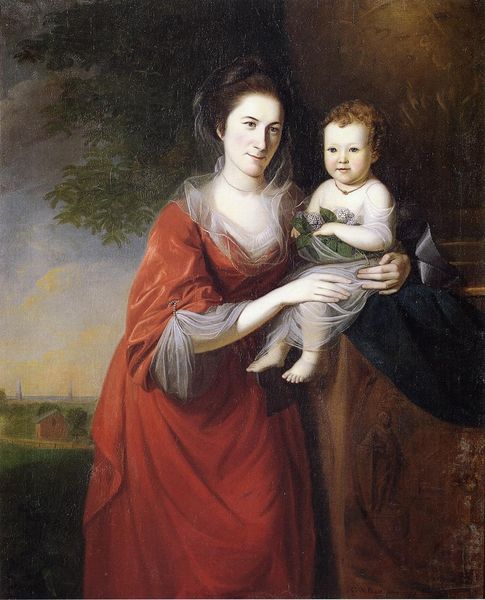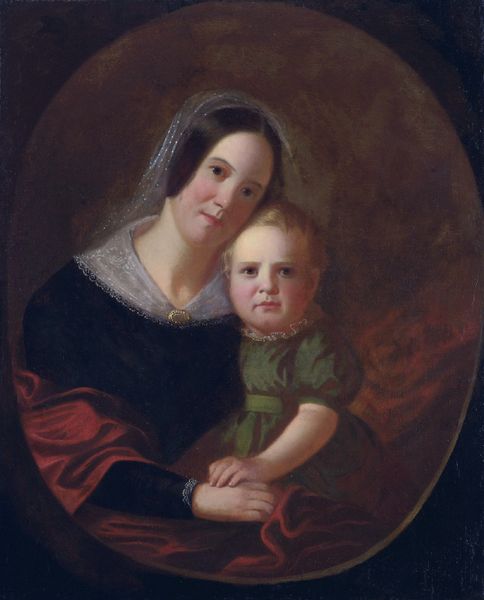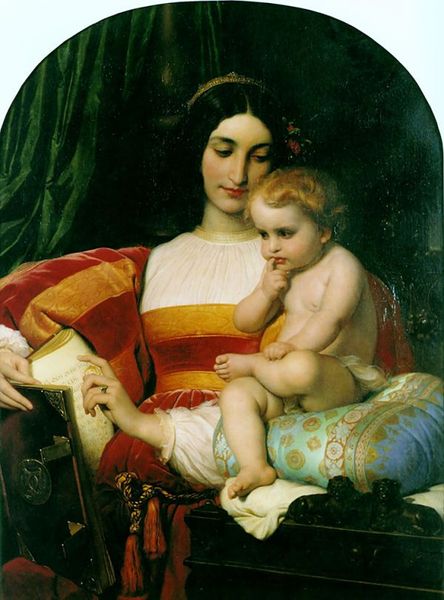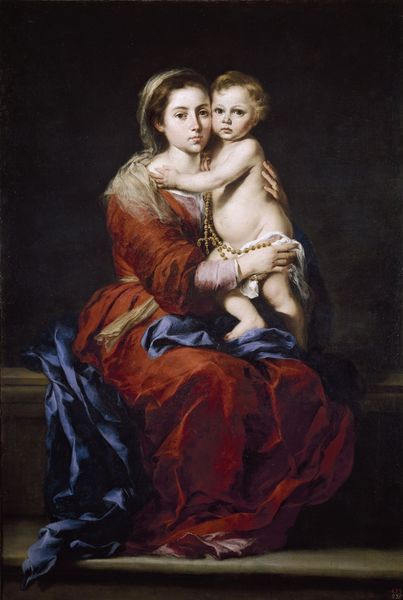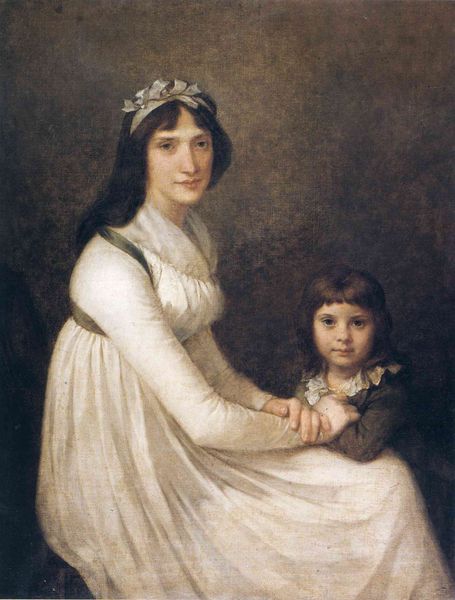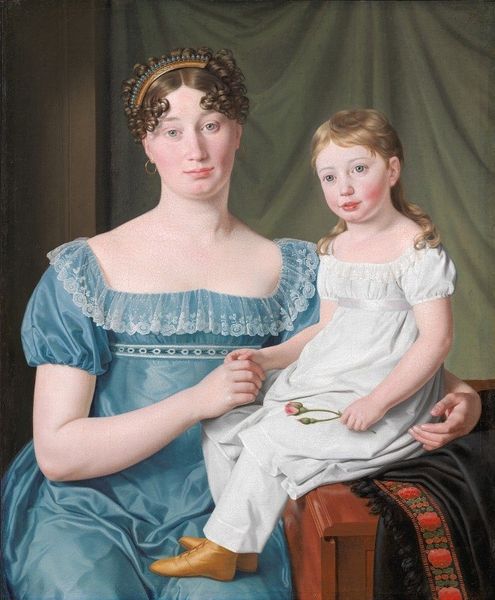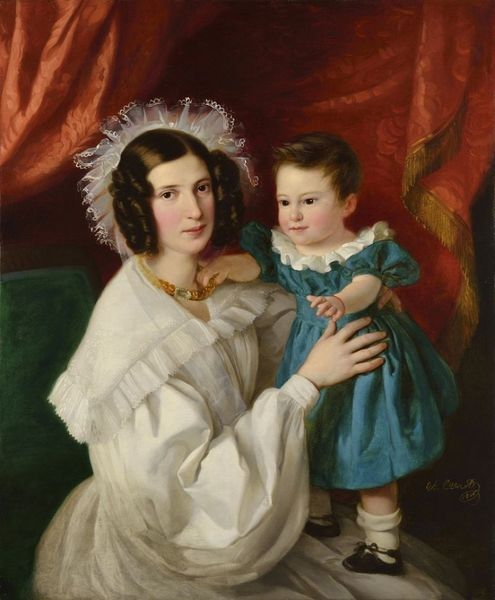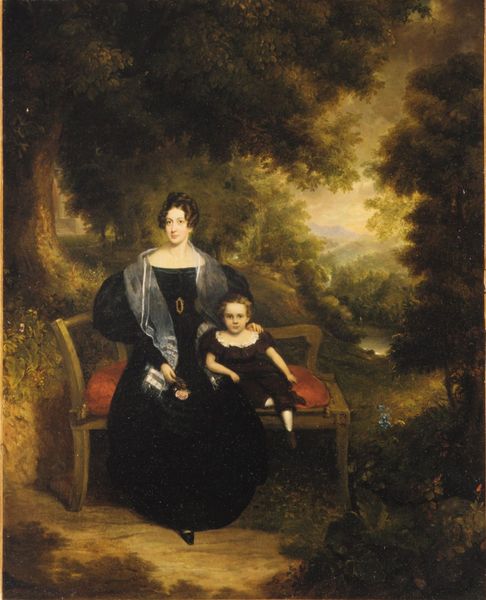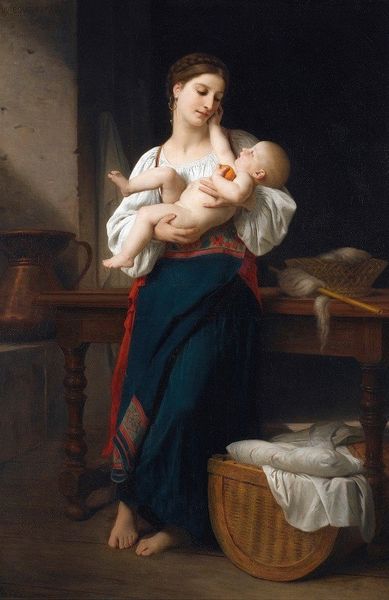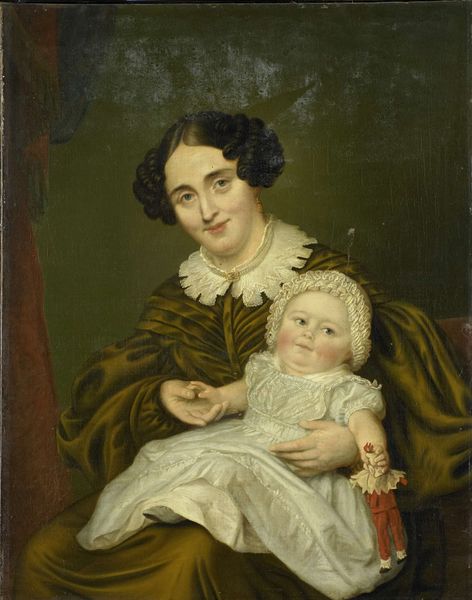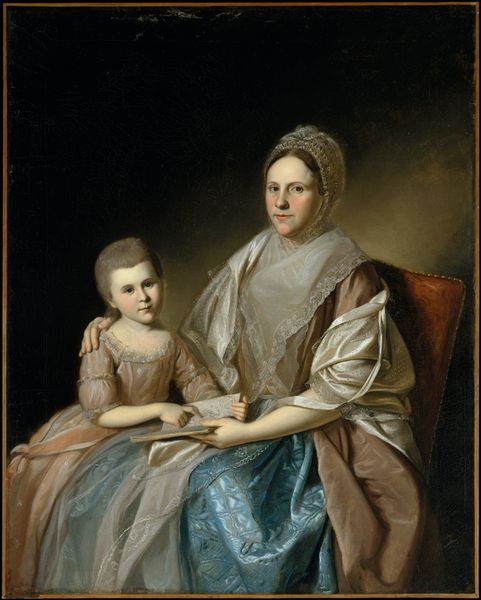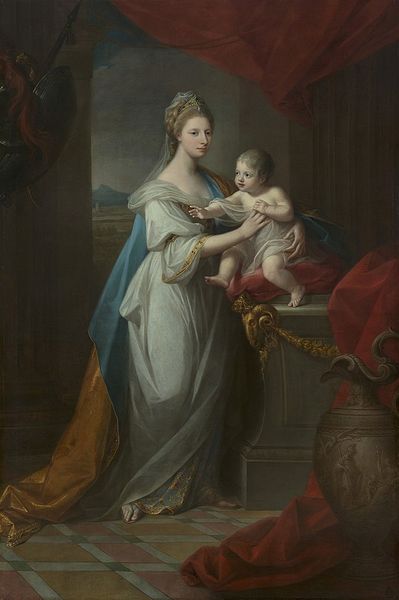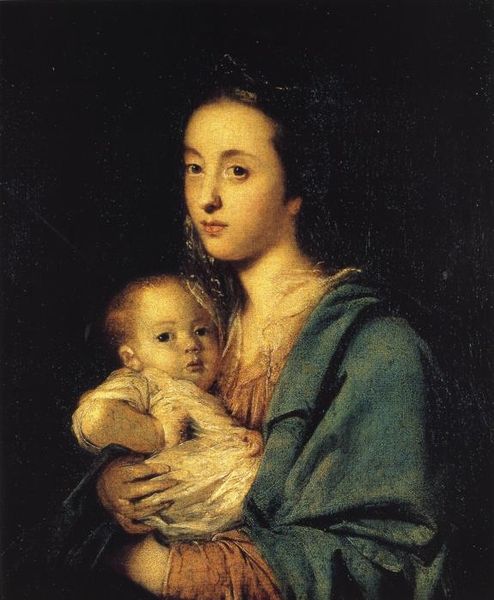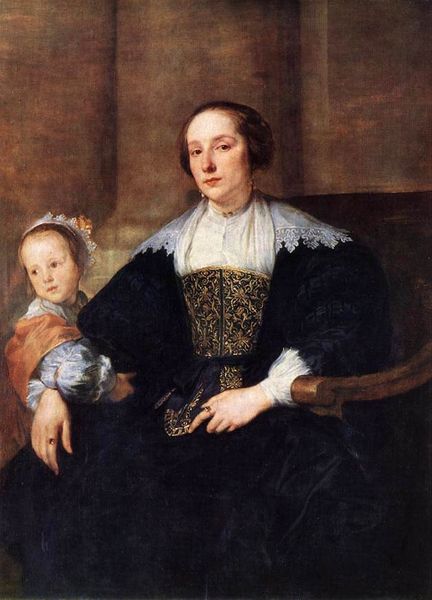
Portrait of Johana De Geer-trip with Daughter 1661
0:00
0:00
ferdinandbol
National Museum, Warsaw, Poland
painting, oil-paint
#
portrait
#
baroque
#
dutch-golden-age
#
painting
#
oil-paint
#
child
#
group-portraits
#
realism
Dimensions: 97 x 126 cm
Copyright: Public domain
Curator: Here we have Ferdinand Bol's "Portrait of Johana De Geer-Trip with Daughter," painted in 1661. It resides today in the National Museum in Warsaw. Editor: The striking thing is the cool detachment in both figures' faces. It’s regal, but also...distant, almost unsettling, the opposite of warm. Is that red drapery meant to signify royalty, or blood? Curator: It's certainly a study in the construction of power and status in Dutch Golden Age society. The De Geer family were very wealthy industrialists of Walloon-Dutch origin. A portrait like this wasn’t just for aesthetic pleasure; it affirmed their position within the social hierarchy, their place among the elite merchant class. Note the elegant clothing, the pearls, the carefully composed scene, and the single quill pen which is possibly used as a signifier to learning and education. Editor: And perhaps also to patriarchy! A woman's worth being shown through wealth, beauty, and family relations. Did women artists at this time have the chance to depict motherhood on their own terms? How would it compare to something like this? There’s such a powerful gaze that we feel like we’re interrupting their space, interrupting that social narrative. Curator: Yes, the historical context is crucial to understanding these pieces and the societal role they played. Group portraits such as this solidified alliances and lineage. It projected an image of stability and continuity which in their time of burgeoning trade and global interaction was crucial for wealthy elites to project. The painting is typical of Dutch realism; meticulously crafted. You get a great sense of their individual material presence but they're not trying to flatter their appearance to you; and they project confidence that is derived from a deep source of status, the way that their wealth places them among a global capitalist network of merchants. Editor: This really emphasizes the historical weight imbued in every brushstroke, doesn’t it? Now, it feels both captivating and deeply tied to its historical and social structures. Curator: Exactly, these portraits function as tools and reminders about power and wealth. Understanding that function, I think, changes how we view this work of art today.
Comments
No comments
Be the first to comment and join the conversation on the ultimate creative platform.
